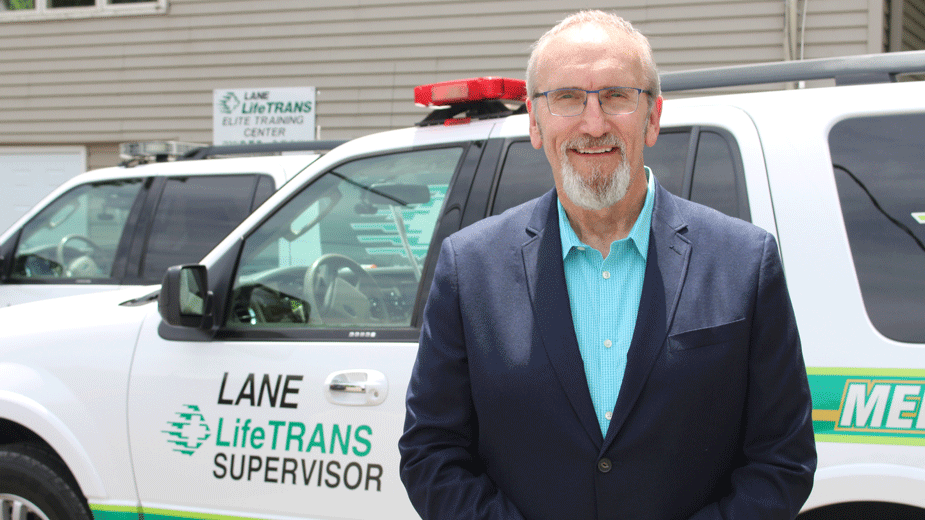YOUNGSTOWN, Ohio – When the coronavirus spread to the Mahoning Valley, Lane LifeTrans was affected almost immediately. In the first days of the arrival of the pandemic here, the ambulance company handled a caller suspected to have COVID-19, the disease spread by the coronavirus.
“That was before we had all the protocols we have now. That one case alone ended up with five of our people in quarantine, three of them top management people,” says Joseph Lane, president and CEO. “That left our assistant chief and the other supervisor to take care of the 130 people in the company for two weeks with no warning, no planning.”
The company, with headquarters in Mineral Ridge, got through that stretch OK, Lane continues, but it wasn’t easy. Some employees were diagnosed with COVID-19 – all have recovered – and personal protective equipment was at a premium, although the Emergency Management Agency helped with supplies.
Meanwhile, the volume of calls has dropped as much as 20%, which Lane attributes to a fear to go to the emergency room during the pandemic.
To handle COVID-19 patients, the ambulance service dedicated one of its trucks, its treatment area covered in plastic so it could be sanitized and disinfected after each use. Austintown and McDonald – two municipalities that LifeTrans provides EMS services to – each provided a spare vehicle for LifeTrans to outfit the same way and use for coronavirus calls.
“That type of interaction made my heart proud,” Lane says. “They knew they had those things, knew they could be of use and made it available.”
Southwoods Health, Boardman, also saw a decrease in volume, reports Steve Davenport, chief operating officer. Because of the suspension of nonessential procedures by Gov. Mike DeWine and Ohio Department of Health Director Dr. Amy Acton, Southwoods saw an 80% drop in surgeries.
“As COVID started hitting and they got concerned about containment and whether hospitals would be overrun, we agreed there needed to be protections in place by the government,” Davenport says.
“Our physicians were down the same because people couldn’t go to the doctor’s office or get procedures in that time. The government saw, patients understood and physicians accepted that there was a much broader mission here to protect public health.”
Southwoods has been in “growth mode” for years, he continues, and while the reduction in procedures meant a slowdown in business, it’s unlikely to hurt the health-care system in the long run.
“It was an external force applied on us and all health-care providers. It was an order from the governor to protect the well-being of our community. It was almost a period of suspended animation. We knew the fundamentals of our business didn’t change. We didn’t lose our competitive edge. We didn’t stop delivering quality care,” he says. “The underpinnings of our business remained very strong; but we had to respect the public health orders.”
When the month-long suspension of nonessential procedures was lifted in late April, rescheduling procedures was left to patients and their physicians, Davenport says, with Southwoods encouraging doctors to discuss the pros and cons of performing surgeries during the pandemic.
“We have varying degrees of return. Our surgeries are probably 90% to 95% pre-COVID levels. Endoscopies are probably a bit behind that, just because you can put that off easier than you can a surgery,” he says. “What we’ve seen is that, by and large, the majority of patients have opted to go forward.”
In the MidMay issue of The Business Journal, we talked to industries throughout the area that have been hit hard by the coronavirus. Previously, we’ve talked to those operating restaurants, motor coaches, barbers and salons, and manufacturers.
Pictured: Joe Lane is the president and CEO of Lane LifeTrans, based in Mineral Ridge.
Related Coverage
Restaurants Try to Rebuild Customers Base
‘Things Are Dismal at Best’ in Motor Coach Industry
